Newsletter February 2026
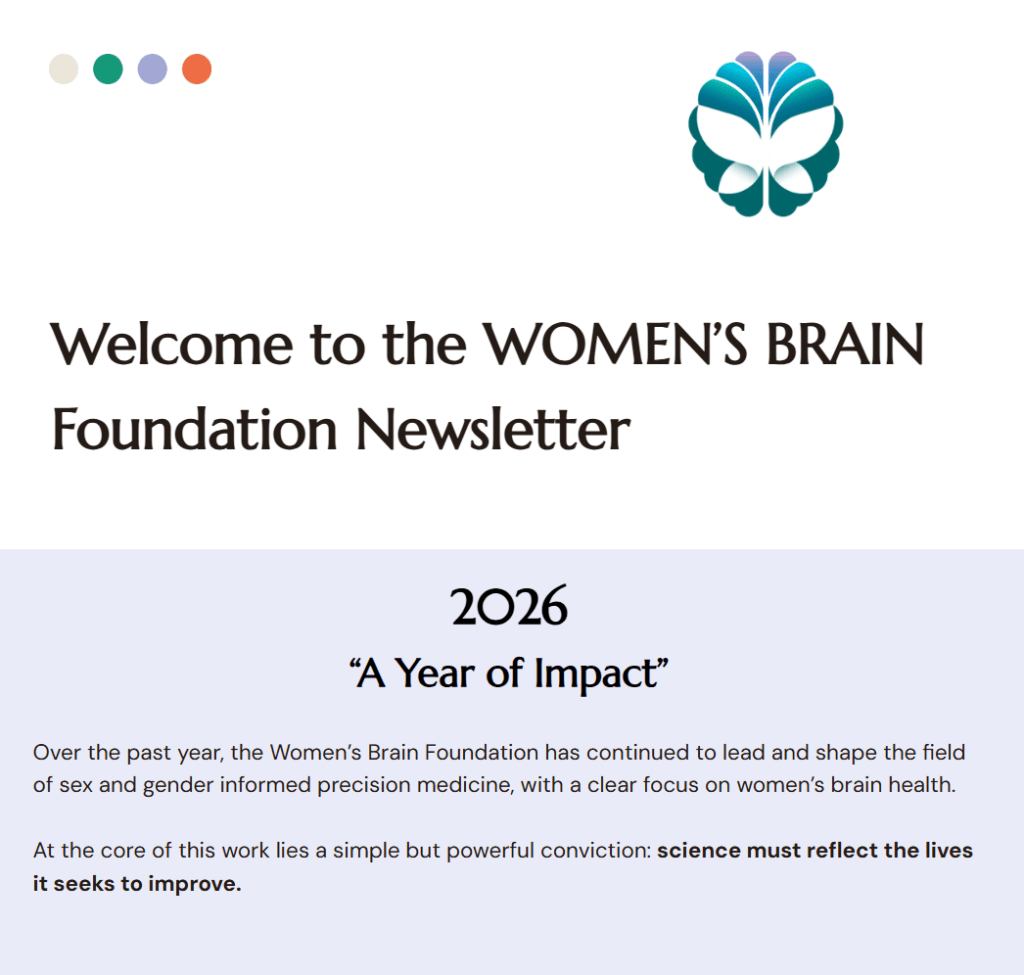
The Women’s Brain Foundation began 2026 in the spirit of dialogue and collaboration by being present at the World Economic Forum—our cherished annual tradition. This important gathering once again provided a powerful stage to launch a new year of growth and transformation. At Davos, we advanced critical conversations with scientific, institutional, and policy leaders, reinforcing women’s […]
Why You Have To Know This!
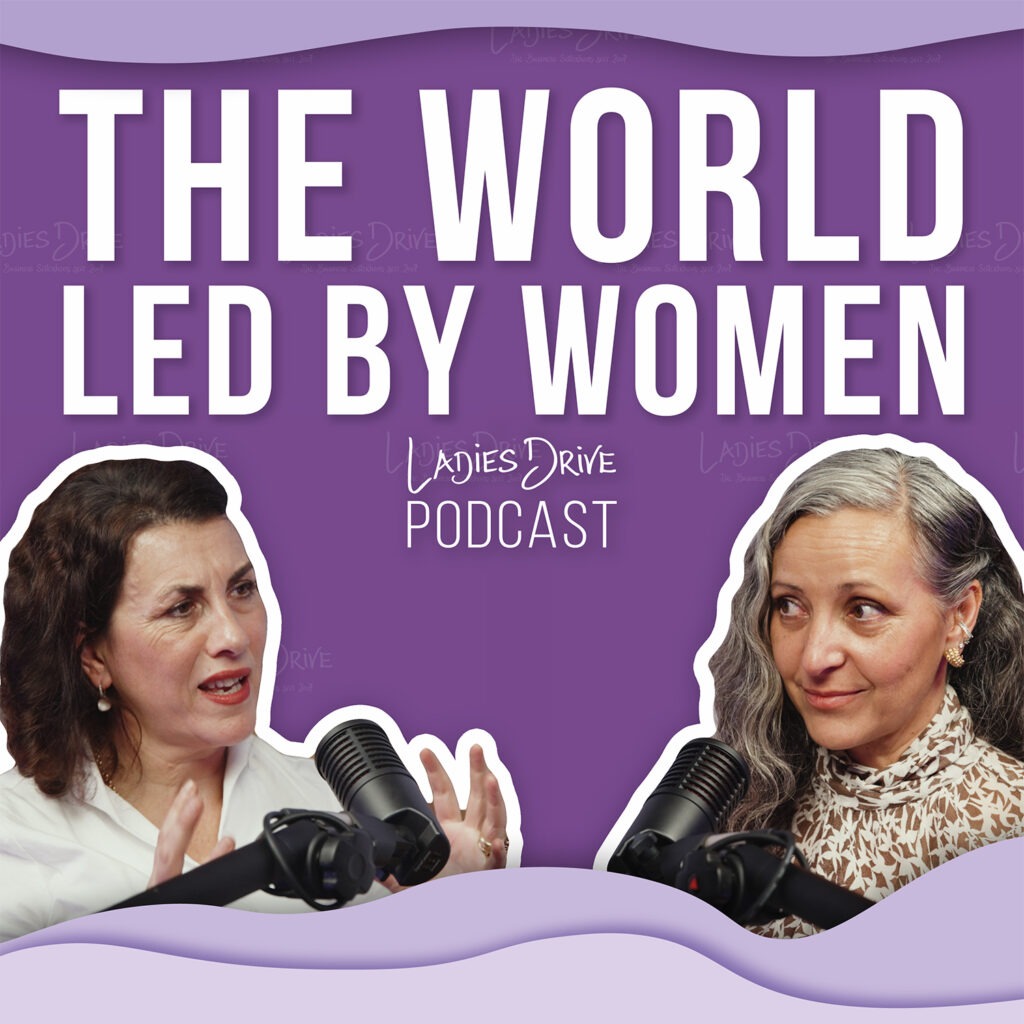
Ladies Drive Podcast No. 32 with Dr.med. Antonella Santuccione Chadha: Why You Have To Know This! 15 January 2026 What happens when neuroscience, leadership and lived experience come together? In this powerful episode, I speak with Dr. med. Antonella Santuccione Chadha about why women’s brains have been overlooked in medicine for decades – and what […]
Different Brains, Better Care: Personalising Neurology for Everyone
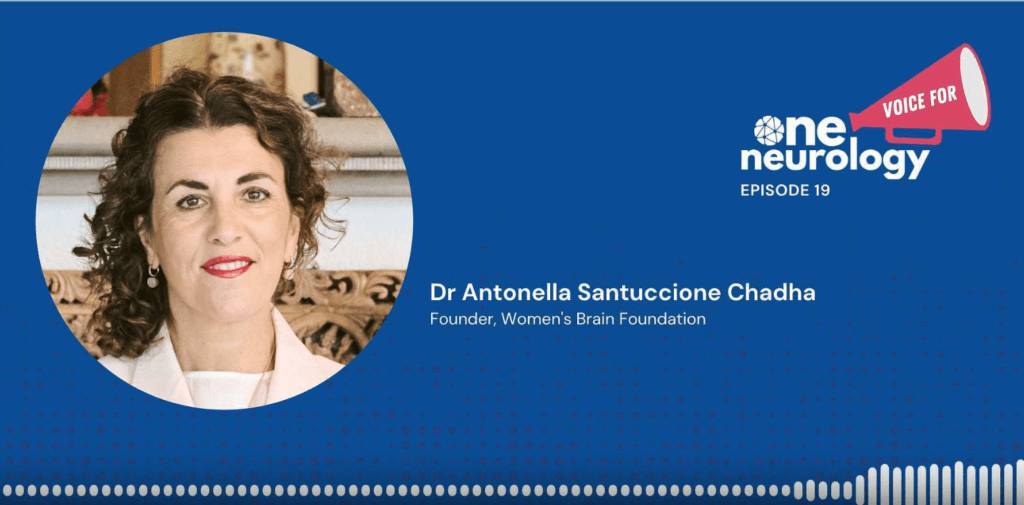
Episode 19 | Different Brains, Better Care: Personalising Neurology for Everyone 15 December 2025 By: One Neurology Podcast Series [Click to Listen Now] In this episode of One Voice for Neurology explores how personalised and precision approaches in neurology can improve care for everyone by recognising individual differences in brain health, including gender, sleep, and […]
ECNP working group on clinical outcomes in early-phase trials

Rethinking clinical trials for children with rare neurological diseases: ECNP experts call for methodological reform 26 November 2025 Utrecht, 14th November 2025 – The Thematic Working Group on Clinical Outcomes in Early-Phase Trials of the European College of Neuropsychopharmacology (ECNP) has published a important letter to the editor in the Orphanet Journal of Rare Diseases, […]
Press Release | 17 November 2025
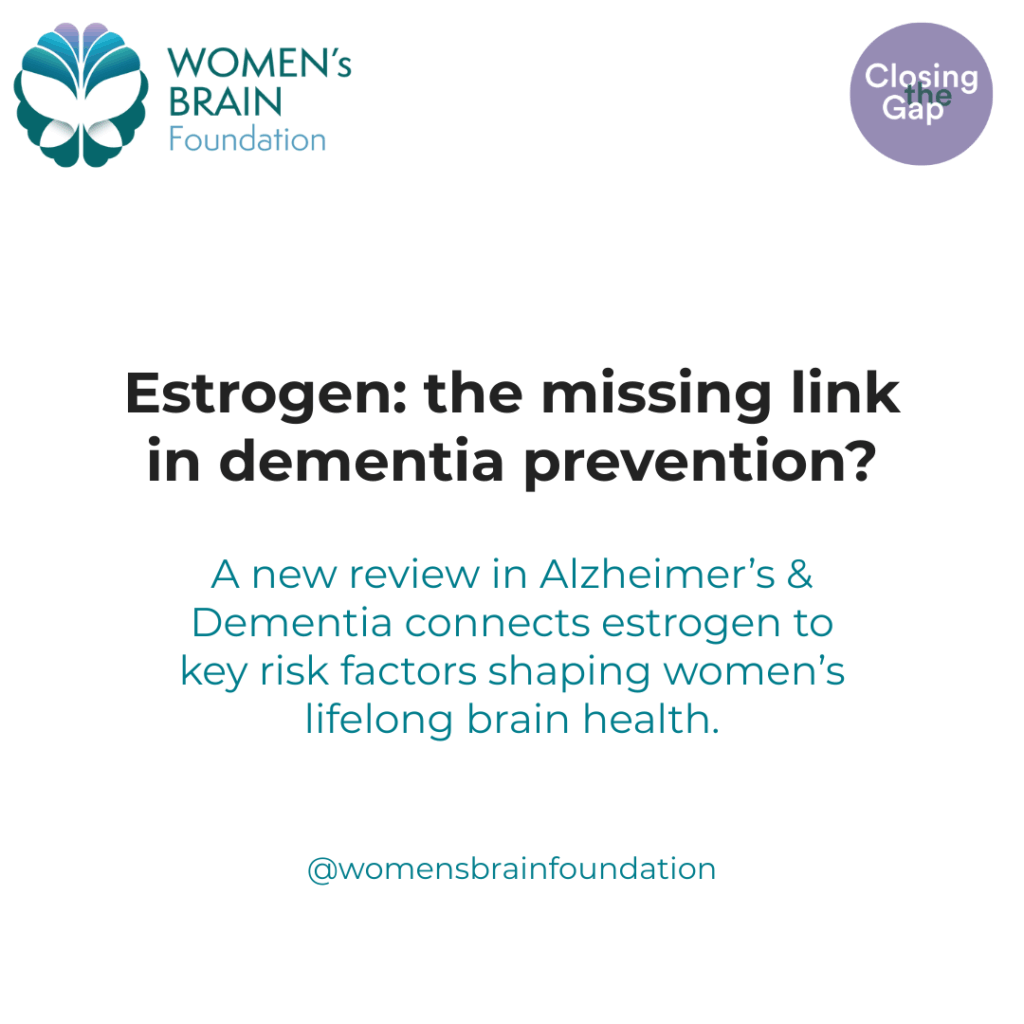
Estrogen May Hold the Key to Reducing Dementia Risk in Women: New Review Highlights Opportunities for Prevention 17 November 2025 The Women’s Brain Foundation Academy is proud to announce a new review published in Alzheimer’s & Dementia: The Journal of the Alzheimer’s Association, identifying estrogen as a potential missing link connecting several modifiable risk factors […]
New Collaboration | Bioinfo 4 Women
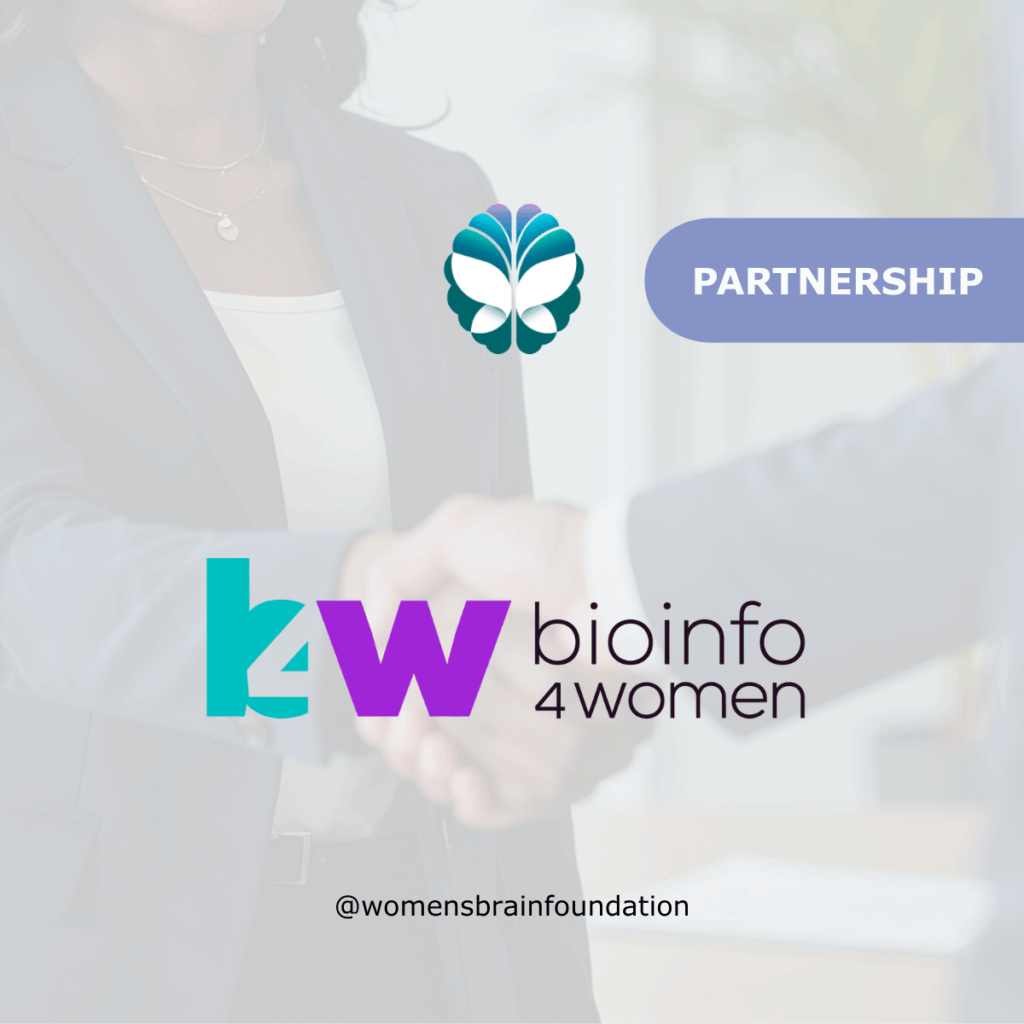
Women’s Brain Foundation and Barcelona Supercomputing Center Unite to Close the Gender Gap in Brain and Mental Health 17 November 2025 The Women’s Brain Foundation (WBF) is proud to announce a new strategic collaboration with the Barcelona Supercomputing Center (BSC), Spain’s national supercomputing facility and one of Europe’s foremost institutions in high-performance computing. This partnership, […]
Closing the Gap Podcast Series – Episode 3
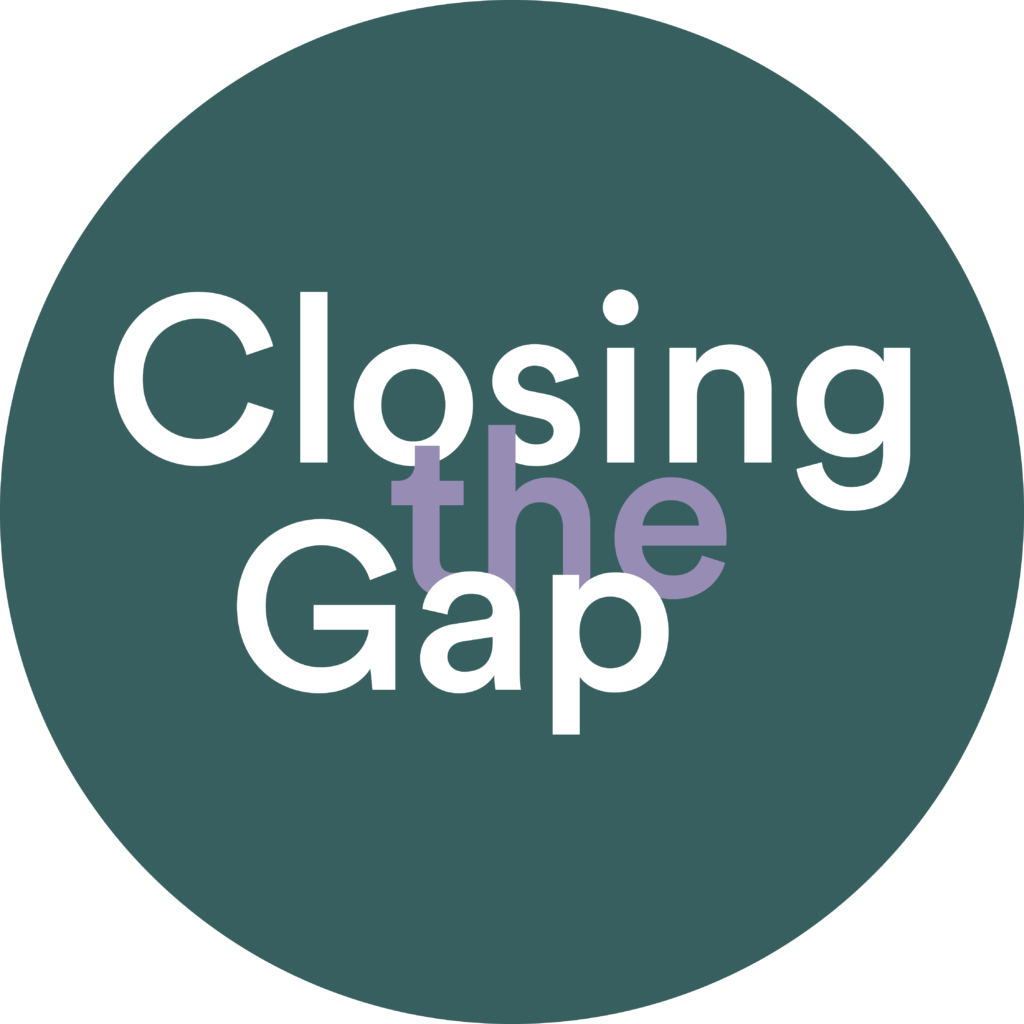
Closing the Gap Podcast Series Episode 3 | We Live a Longer Time Being Sick with Dr. Anna Erat 17 November, 2025 People are living longer, and women live on average longer than men. At the same time, they spend more years of their lives in poor health. Dr. Anna Erat, an expert in longevity […]
Gratitude in Action: Advancing Women’s Brain Health Research

Gratitude in Action: Advancing Women’s Brain Health Research 17 November 2025 We are deeply grateful to Jo Taylor for her generous donation of 3,000 USD to the Women’s Brain Foundation (WBF) in support of our research on sex and gender differences in Alzheimer’s disease, the very work that inspires our upcoming webinar, “Sex and Gender […]
Press Release | 10 November 2025
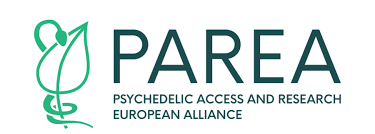
Women’s Brain Foundation joins PAREA as full member to strengthen gender-informed mental health innovation 10 November 2025 The Psychedelic Access and Research European Alliance (PAREA) is pleased to welcome the Women’s Brain Foundation (WBF) as a full member. This collaboration reinforces a shared commitment to ensuring that sex and gender differences are systematically recognised and addressed across mental health and psychedelic research, […]
Press Release | 30 October 2025
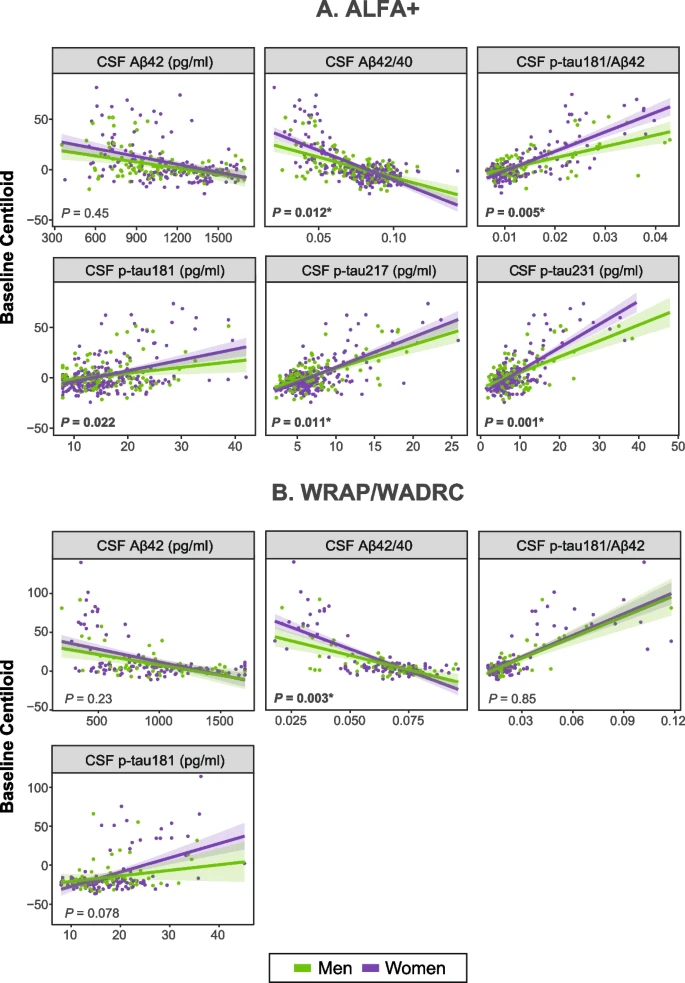
New Study Reveals Sex Differences in Alzheimer’s Biomarkers Before Symptoms Emerge 30 October 2025 Sex-based differences in biomarkers for Alzheimer’s Disease (AD) can be observed in the cerebrospinal fluid (CSF) years before the disease manifests. The Women’s Brain Foundation (WBF) in collaboration with an international team of scientists led by researchers from the Barcelonaβeta Brain Research […]



